Learning to Struggle Well With Dr. Kevin Gilliland
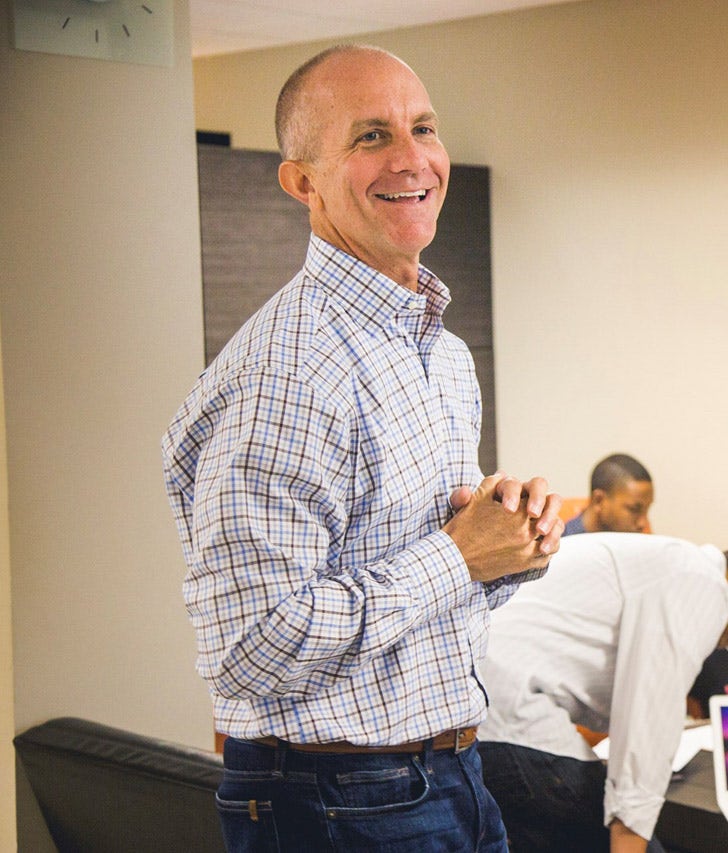
Most of us would agree with the notion that life is hard, and we’re under constant stress. Dr. Kevin Gilliland asks the thought-provoking question, what if life’s supposed to be that way?
Gilliland, a clinical psychologist and the executive director of Innovation360, a groundbreaking treatment facility, suggests we stop looking for the easy button and instead, accept that we are going to struggle. He says that if we struggle “well,” we’ll find ourselves living better and enjoying a life worth living.
We’ve come a long way as a nation in terms of prioritizing wellness. As a whole, we are eating better, moving more and factoring meaning—not just money—into our career choices. Much of this is thanks to goal-oriented thinking: We meal-plan, track our mile pace and make spreadsheets for personal objectives at the office. While we may not do all those things all the time, we recognize that when we do, we live better.
Gilliland believes applying this goal-oriented thinking to mental health would drastically decrease daily fear and anxiety levels. As he puts it, “Instead of asking your mental health to do something for you, you need to do everything you can for your mental health.”
While the task of assessing and then changing our psyche may sound Herculean, Gilliland’s goal when writing his debut book—“Struggle Well, Live Well: 60 Ways to Navigate Life’s Good, Bad, and In-Between” (Bright Sky Publishing, 2017)—was to offer concise, brass-tacks advice. Most people, in his opinion, don’t need a therapist. We just need someone to level with us. We sat down with Gilliland to do just that.
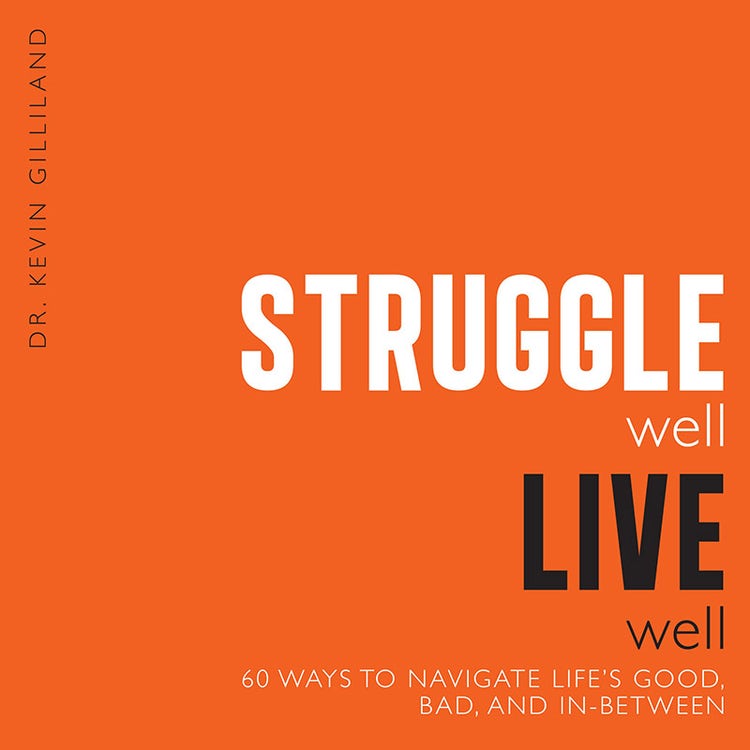

Redefining wellness
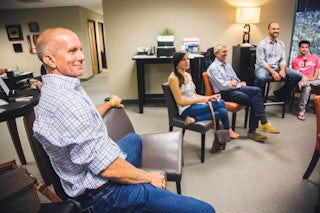
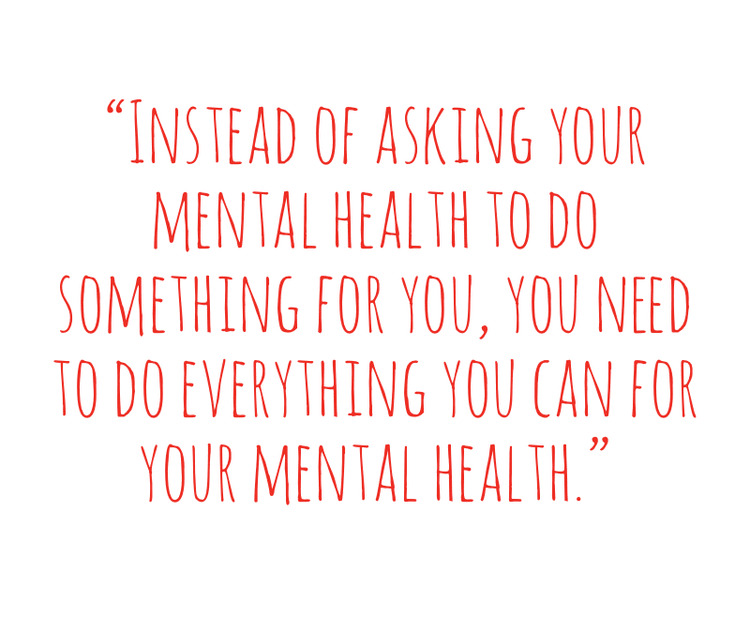
But, according to Gilliland, we often fail to recognize the other side of the same coin: Tending to our mental health improves our physical health (talking to a friend reduces tension) and neglecting our mental health harms our physical health (stress leads to high cortisol levels that are tied to a myriad of diseases).
Gilliland explains that when we neglect what’s going on in our heads, it ultimately spills over into our physical lives, in the form of headaches, shallow breathing, nausea, loss of libido and more. While stretching may help the aches and antacids may calm the nausea, these solutions are temporary.
The real fix is learning to prioritize mental health in the way we do physical health. Instead of defining wellness as physical health and mental health, we must accept that they are one and the same.
Making bad days better

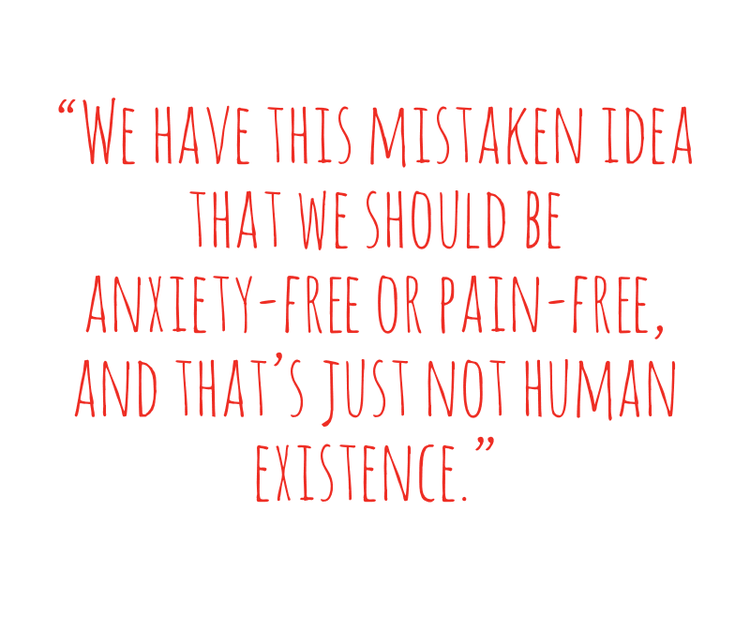
Gilliland stresses that life isn’t composed of the Instagram-perfect moments flooding our news feeds. “We have this mistaken idea that we should be anxiety-free or pain-free, and that’s just not human existence,” he explains. The key to living well, Gilliland says, is to make the bad days better. Once we accept that life is a series of struggles, we can see each struggle as a problem to solve. And, as he often points out, humans are great at solving problems.
While the unrelenting nature of struggle may sound weighty, Gilliland says it’s actually freeing. We often think our happiness is dependent on overcoming one obstacle. For example, “Once I get a promotion, I’ll be happy.” When we do get the promotion, we are happy, but only until the next “Once I …” arises.
If we accept that our happiness is not dependent on any one thing and that we will always have a different “one thing,” we can look at the underlying anxieties and learn how to struggle better.
Take stock
The volume of self-help content can be overwhelming, especially if we haven’t truly examined the areas in which we need to improve. “You’ve got to have an awareness,” Gilliland says. “Our ability to change is related to our insight level.”
After confirming we’re eating, sleeping and moving well, and not using drugs or alcohol to cover an emotion, Gilliland says to examine our relationships, careers and spiritual practices, focusing on who or what triggers negative emotions or reactions.
Once we’ve found the gaps and how they relate to our moods and anxieties, we can seek more targeted help for changing our behavior. “Struggle Well, Live Well” offers boiled-down fixes for what Gilliland has determined, based on two decades of research and practice, are common misfire areas. While his book is an excellent resource for self-improvement, he is quick to point out that a conversation with a trusted friend is perhaps equally valuable, not only because “collaboration is the best tool for solving problems” but because sharing our hang-ups makes them easier to carry.

Fight or flight to rest and digest

Human brains are extraordinarily noisy. Gilliland says the noises that matter most in terms of mental health are our own inner voices. Our encouragement or discouragement holds major sway over our moods and anxieties. And even those of us battling serious addiction or depression can quiet our critic, Gilliland says. Simple but concerted efforts, like questioning whether a given thought is a help or hindrance, can go a long way toward daily happiness.
When our minds really get going, Gilliland says we can trigger an actual fight-or-flight response. Our bodies shift blood flow from stomach and brain to the large muscle groups required to run, punch and kick. This decreases our executive function, making it even more difficult to push the thoughts that aren’t serving us well away. This snowball effect is how panic attacks often manifest.
Gilliland has concluded that the best way to stop our brains from cascading into total negativity is the simplest: “The single biggest thing you can do is to take deep belly breaths. It instantly shifts the body’s functioning.” With a few rounds of diaphragmatic breathing, we can use our minds to flip fight or flight back to rest and digest.
Once the blood returns to our prefrontal cortex, we are much better equipped to talk our inner critic off the cliff.

Put it to paper
This fall, when taking stock of the year that has passed and the year that is to come, Gilliland urges us all to make mental health goals alongside our gym, work and family goals. “Where’s your spreadsheet of the activities that support and promote being as mentally strong as you can be?” he asks.
That list might include putting “Struggle Well, Live Well” on the reading list.
About Dr. Kevin Gilliland
Kevin Gilliland, Psy.D., is an expert in mental health, depression and addiction. After working more than two decades in healthcare as a clinical psychologist, Gilliland became a pioneer of outpatient treatment as the CEO and Executive Director of Innovation 360 a treatment center for alcohol & drug addiction, depression, anxiety, bipolar, family therapy and life development.
Gilliland has a diverse range of expertise and experience including research for alcohol and opiate addiction medications and serving as an expert witness and evaluator in court cases involving substance use. Gilliland has in-depth knowledge and expertise across a broad range of mental health issues. He is a frequent lecturer and speaker at various seminars worldwide and highly sought after by local and national media outlets as a key expert in mental health coverage.
Follow Dr. Gilliland: Facebook @i360life | Instagram @dr_keving
Video credit: FG Trade, Getty Images
Photo credit: Tim Gouw, Unsplash; Dr. Kevin Gilliland; flisak, Getty Images; João Silas, Unsplash; LumineImages, Getty Images
